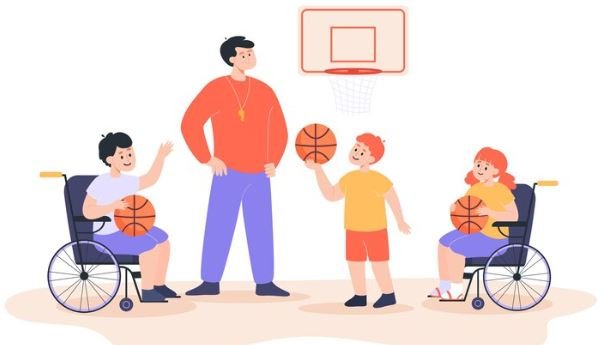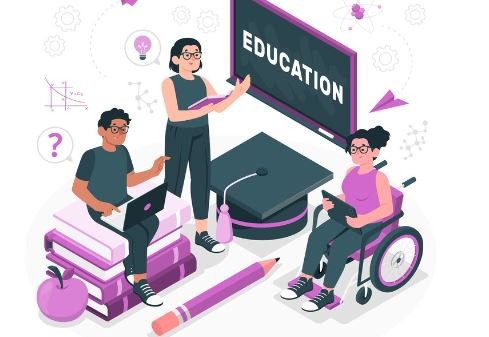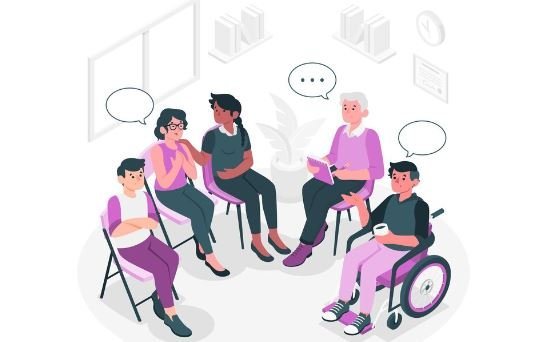School should be a place where every child feels safe, comfortable, and eager to learn. But occasionally, students are underserved or missed altogether because they differ in some manner.
This is the reason behind us talking so much about inclusive education. When we have inclusive schools, it means many things including all students learn and belong together in the same classrooms no matter who they are or how they learn.
It becomes significant when it provides an equal playing field for all, to rise and feel at home in this world. In this article, we will take a look at why inclusive education should be encouraged and helped to create positive self-esteem.
Making Sure Everyone Belongs
Everyone has a right to be in an inclusive school-do you? In an inclusive classroom, all students (whether they are bright or slow learners/teacher assistants/students on ATSI, different cultures, and broad-based learning styles) learn together.
This makes everyone feel included and appreciated as themselves. Students need to feel like they are a part of something having this sense of belonging helps develop confidence and excitement for learning. Our school community must be empowered with the understanding that everyone belongs to our team and is esteemed.
Helping All Students Learn
Inclusive education has also been found to be beneficial for the learning of all students. In the same room, children have different needs so teachers gonna teach their lesson differently teaching it in a way that all could understand.
That could involve classes that incorporate videos, hands-on activities, or group work which makes learning more enjoyable and engaging for all. Inclusive education ensures everyone has the best opportunity to be successful by meeting all students at their level of need.
Building Friendships
Inclusive education provides an additional reason as to why it is imperative for students of all abilities a chance to build relationships and friendships with people who are different.
In a class with inclusive teaching students learn about people who may have different abilities or cultural backgrounds. And these friendships teach students about what it means to be kind, to understand and respect others.
Getting along with people who are different from their own is an essential skill -one that will serve students no matter when in life they enter school.
Encouraging Teamwork
Inclusive education teaches children the benefits of teamwork Good, inclusive classrooms often see students working together on projects or activities or playing games.
This allows students to learn how to communicate with each other, share their ideas, and solve problems as a group. In a sense, through teamwork, the kids discover that everyone brings something to the table and when they work together, amazing things can arise.
Moral Lesson in Respecting Differences
Inclusive Education makes respect for differences possible As students gain abilities while working with others who might have different skills or experiences, they learn to value and respect those distinctions.
They understand that every person possesses unique strengths and they permit them to be different. It assists in fostering a supportive and inclusive school environment for all users, evident of kindness and grace across time.

Preparing for the Future
Employable Skills — Inclusive education is essential to prepare students for the future. In reality, people with different abilities and diverse backgrounds work together.
Inclusive education helps students learn about getting along with others, regardless of who they are. Being able to work collaboratively in the future is an important life skill as it enables students to be more kind and caring individuals which our society desperately needs.
Caring for the Whole Student
It also helps in the personal development of a student, not just academically but socially and emotionally as well. More often than not, in an inclusive classroom teachers ensure every aspect of growth for a student.
Maybe it is helping a student learn to read, maybe it’s coaching the quiet one in class to speak up more with their thoughts or perhaps you are simply mentoring someone through friendship formation. When we focus on the whole child, inclusive education supports well-rounded young people who are fully prepared for all of life.
Building A Good School Culture
An inclusive education is also about providing a supportive and safe school environment. Inclusive Education creates schools where students, parents, and educators alike feel they all belong together! This creates a nurturing environment for students and that is all you want to feel safe at school, so we can learn without worries.
Encouraging Empathy
Empathy is underpinned as one of the primary rationale but it does not stop here Empathy is the ability to understand and care about how other people are feeling. In an inclusive classroom, students are exposed to those with other challenges causing them to develop empathy.
This fosters empathy and cooperation among students. Empathizing is a skill and teaching our kids to do so in school can help them create stronger connections at work as well as in their personal lives.
Meaningful learning
Inclusive education results in more genuine learning for all students. If students of different abilities and backgrounds learn together, they will bring unique perspectives to the classroom in terms of experiences.
This makes the discussions more interesting and helpful for both students to learn from each other. Inclusion of education to have students value different perspectives, and realize learning is more than a means of achieving knowledge; instead it helps them understand things in context.
Reducing Bullying
The need for inclusive education is so much more also because it reduces bullying. This kind of education helps reduce the likelihood that they will bully those different from them.
Inclusion education diplomacy it teaches all our students that you must treat everyone with kindness and inclusiveness, no matter what! Creating a safer environment where all students feel safe is possible through the establishment of inclusive and respectful school cultures.
Giving Everyone a Voice
One more justification for the thing, making inclusive education important is that it facilitates having your say. all ideas are shared, and questions are asked and answered. This gives students a sense that they are valued and listened to. When students know that their voices make a difference, they become active and motivated learners.
Encouraging Creativity
A more inclusive education style also fosters creativity because it lets students show what they know in a diversity of formats. Given that some students will get creative in different forms such as artwork or a song to show what they have learned.
This instills an input into students to imagine and be innovative. Innovative and creative, learning becomes fun through inclusive education where students discover their skills of thinking.

Helping Teachers Grow
Teachers also benefit from the need for inclusive education. The inclusive classroom offers an excellent opportunity to challenge a teacher’s ideas and ultimately teaching style or strategy to meet the diverse needs present within such a setting.
This helps teachers enhance their skills and enables them to be better educators. The type of work that fosters such an open, inclusive environment for teachers to learn from one another and innovate novel solutions makes a real impact on how students can succeed.
Supporting Families
Thus, inclusive education is key to supporting families. Inclusive education creates a more welcoming environment, in which all families feel included and connected to their schools.
All of this leads to stronger school-family partnerships and helps every child have the help they need to thrive. Families can be reassured their children are receiving the education they deserve and being respected, and valued as humans.
Building a Stronger Community
After all, inclusive education is truly a way of being in a community. Inclusive schools will show their students that we are all in this together and the importance of supporting one another.
This then plays a role in developing unity and teamwork beyond the walls of their classroom into the greater community. Inclusive education assists in imparting values to foster respect, and decency and providing each human the opportunity to lead a successful life.
Conclusion: The Significance of Inclusive Education.
In inclusive education, it is obvious that the essential rights of all children must be kept. It also contributes to a learning environment in which all students feel that they belong, are respected, and will be cared for.
Inclusive education mixes everyone, regardless of their capacity and background: an experience that teaches valuable lessons in respect, teamwork, and empathy. It equips students for the future by teaching them transferable skills that apply to an interconnected world.
Inclusive education is not only good for some students: it’s also better for all of us, by contributing to a more positive, supportive, and successful school community.


